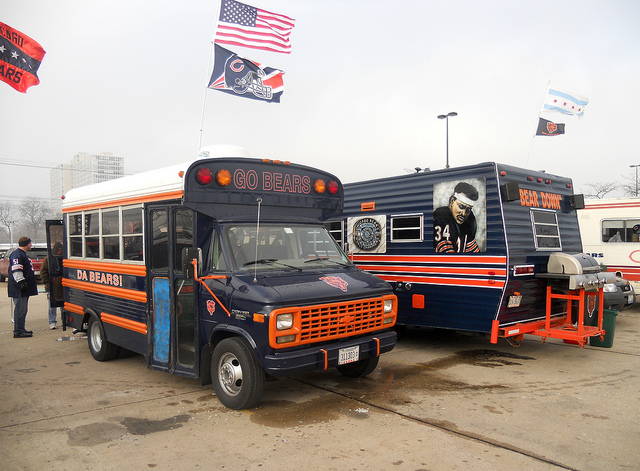The Debate Over The Lucas Museum Has Only Started
By Chuck Sudo in News on Jul 1, 2014 8:30PM
Now that the civic cheers and other hullabaloo over Chicago becoming the future home to the Lucas Museum of Narrative Art has died down, the focus now turns to the details like which politicians will continue to spearhead the effort; which ones will step away; whether the Lucas Museum site will remain where it’s proposed; will public funds eventually be needed; or even if Chicago needs it.
One politician who already recused himself from the discussion is Ald. Ed Burke. The 14th Ward alderman is sitting out the legislative debate over the lakefront site in case the group Friends of the Parks follow through on filing a lawsuit to block the museum from being placed where parking lots between Soldier Field and McCormick Place currently exist. The reason for Burke’s action is he doesn’t want his wife, Illinois Supreme Court Justice Anne Burke, to recuse herself if the court challenge makes its way to Springfield. Friends of the Parks and other environmentalists believe the museum would run counter to Daniel Burnham’s vision for the lakefront in The Plan of Chicago. They believe the lakefront is already becoming more crowded with development at the expense of parkland.
Supporters of the project, such as Crain’s Chicago Business’ Greg Hinz, back the project because of George Lucas’ plans for the 18 acre site include more park space than currently exists. But no one will know for certain until Lucas and his museum’s board reveal the plans for the museum.
Hinz notes Mayor Rahm Emanuel needs to ensure the Lucas museum will be a welcome addition to the lakefront but that a legal challenge should be out of the question.
Mr. Emanuel needs to hold Mr. Star Wars to that promise. And if someone else has an alternate plan and the money to implement it, put it on the table now. Waiting is not a plan.
Emanuel, for what it’s worth, said the City Law Department did its due diligence and is confident the Lucas Museum will fall within the guidelines of the Lakefront Protection Ordinance.
“[Corporation] Counsel’s been there the whole way. And we think we’ve come up with, what is a sound process. Otherwise, we wouldn’t be taking the steps we’re taking . . . It’s an incredible addition to have that type of educational and cultural opportunity, let alone the economic development. And it is done in a way — in fact the Sun-Times editorial page noted — this is consistent with the lake protection act that exists.”
Critics of the plan are also skeptical of Emanuel’s claim the Lucas Museum will receive no public funds during its construction. They already point to the $1 per year lease on the land the city is offering Lucas. Friends of the Parks CEO and president Cassandra Francis believes the parking lot asphalt currently serves as “engineered barriers for the containment of contaminated soil underneath” left behind from the Soldier Field renovation project a decade prior. Francis also cited the museum’s plan to move 3,000 parking spaces underground at a cost of $45,000 each. “That eats up close to half of his $300 million budget for the building,” Francis told the Sun-Times.
These tabs and others have some questioning why major American cities lobby for new cultural centers. A study from the University of Chicago’s Cultural Policy Center of cultural centers opened across the country between 1994 and 2008 found the net benefit to communities where these museums, galleries, concert halls, et al. was negligible. Kristin Capps writes at Citylab:
While poverty rates fell and property values generally rose in communities where new cultural centers or expansions were built—good news!—poorer residents also suffered displacement in those areas. Beyond the standard gentrification effect, the researchers' evidence shows, supply may have outstripped demand over the course of the U.S. arts center building boom—leaving some cities with the responsibility to maintain or even pay for cultural centers that they don't entirely need.
The only people being displaced by the Lucas Museum at current will be Bears tailgaters, but there’s reason to doubt the so-called Bilbao effect will even be felt in the South Loop and Historic Prairie Districts that have been centers for accelerated development over the past decade. Capps mentions the cost overruns and delays that are almost always a certainty with these projects.
Capps also noted a significant factor that plays into almost all these runs for new museums:
What the research shows is that where wild exuberance takes the place of passionate support leavened with level-headed analysis, civic leaders and arts patrons make mistakes, and these mistakes can result in budget shortfalls and cost overruns. Cultural projects can be bad for cities—and vice versa.
In short, we need more “what will the Lucas Museum cost us” to balance out the mass chorus of “Fuck, yeah! Chicago is getting a ‘Star Wars’ museum!!” in these debates.
